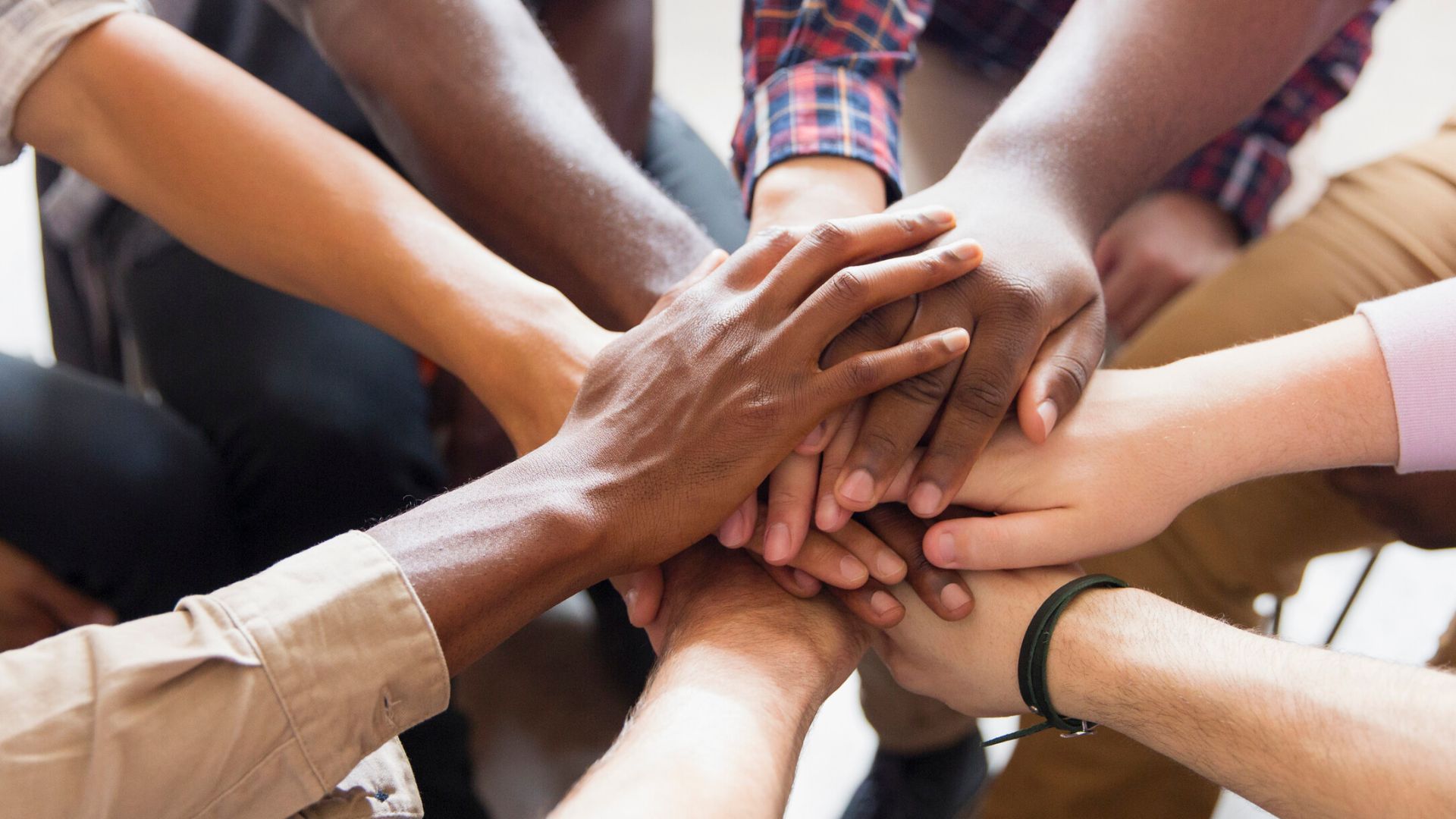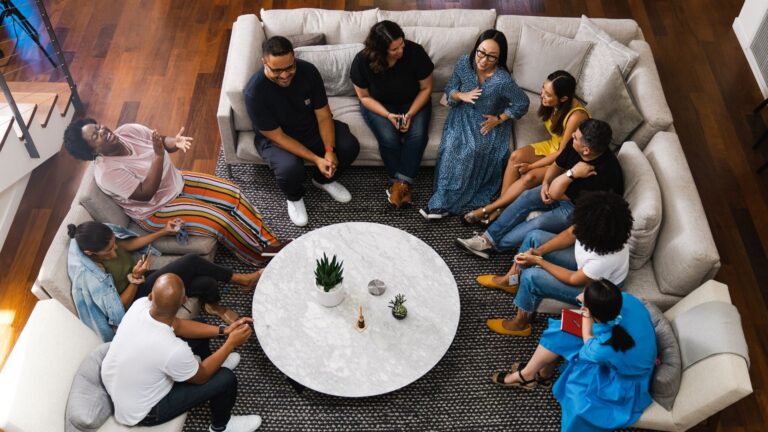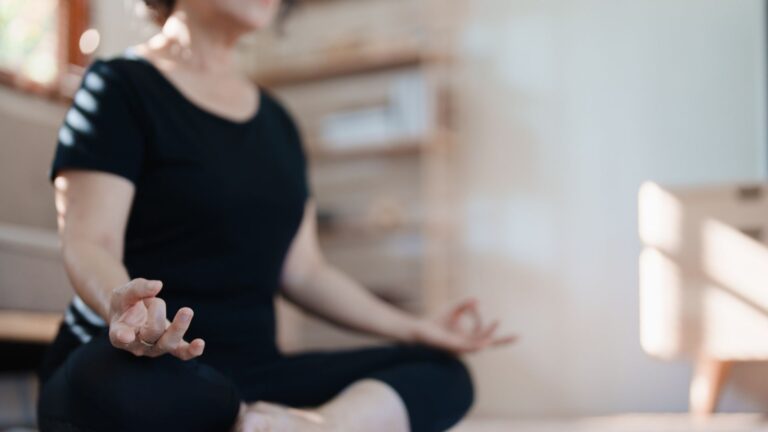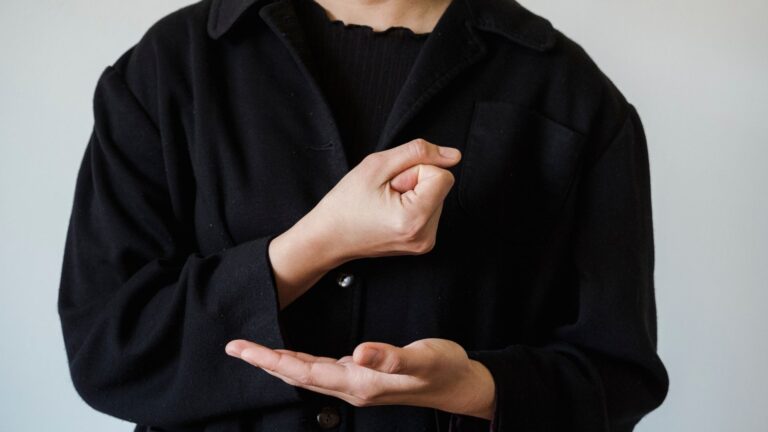Healing doesn’t happen in isolation. That’s exactly why group counseling is so powerful.
Whether you’re navigating anxiety, depression, trauma, or working through addiction recovery, group counseling provides something individual therapy alone often can’t: the sense that you’re not in it by yourself. You’re surrounded by people who get it. People who’ve felt the same struggles, fought the same battles, and are learning how to grow together.
If you’ve never tried group counseling before, you might wonder what to expect, how it works, or whether it’s the right fit for you. In this guide, we’ll cover the essentials and show you how Ridgeline Recovery in Columbus integrates group therapy into both mental health care and addiction recovery treatment.

What Is Group Counseling?
Group counseling is a form of therapy where several individuals meet under the guidance of a trained therapist to discuss their thoughts, behaviors, and experiences. These sessions are designed to create a safe, supportive space where participants can explore challenges, gain perspective, and develop healthy coping skills.
Common focus areas for group counseling include:
- Anxiety and depression
- Trauma and grief
- Substance use and relapse prevention
- Self-esteem and communication
- Emotional regulation
- Relationship struggles
Unlike a support group, group counseling is led by a licensed mental health professional who structures each session around therapeutic goals.
Benefits of Group Counseling for Mental Health and Addiction Recovery
The idea of opening up in front of others might feel uncomfortable at first, but the benefits are well-documented. According to the National Institute on Drug Abuse, group therapy and peer support can strengthen recovery by encouraging motivation, helping replace harmful behaviors with healthier habits, and improving relationships and communication skills critical to long-term healing.
Here’s what group counseling offers:
- Connection: You’ll hear from others who are facing similar issues, which can reduce feelings of isolation or shame.
- Perspective: Group members often help each other see problems in a new way, sparking insight and growth.
- Practice: You’ll learn and apply new communication and emotional regulation skills in real time.
- Support: You’re not alone. The group becomes a space where everyone shows up for one another.
- Accountability: Regular sessions with peers can keep you motivated and committed to your goals.
Types of Group Counseling
Group therapy isn’t one-size-fits-all. There are different types of group counseling options based on your unique needs and stage of healing.
1. Mental Health Process Groups
These are general therapy groups that support individuals dealing with depression, anxiety, trauma, and life stress. They’re often open-ended and focused on sharing experiences, learning coping skills, and practicing self-awareness.
2. Addiction Recovery Groups
These groups support individuals in all phases of recovery, from early sobriety to long-term maintenance. They often cover:
- Triggers and cravings
- Relapse prevention strategies
- Building a sober support network
- Navigating relationships during recovery
3. Dual Diagnosis Groups
For those facing both substance use and mental health conditions, dual diagnosis groups provide integrated support. Topics include:
- Managing medication and mood
- Balancing therapy and recovery goals
- Coping with guilt, shame, or trauma
4. Skill-Building Groups
These are structured sessions focused on teaching tools for daily life—like DBT (dialectical behavior therapy) skills, mindfulness, emotion regulation, or stress management.
What to Expect in a Group Counseling Session
If it’s your first time joining a group, you might be wondering: What’s it actually like?
Here’s what typically happens:
- Check-In: Group starts with a brief check-in, where participants share how they’re feeling or what they’ve been working on.
- Therapist-Guided Discussion: The therapist introduces a topic or question. This could relate to coping skills, communication, or a theme like boundaries or relapse triggers.
- Open Sharing: Group members are encouraged to share thoughts, emotions, and feedback with one another.
- Reflection and Practice: The session wraps with key takeaways, skill-building exercises, or intentions for the week.
You’re never required to speak if you don’t want to. Many people choose to observe at first, and that’s perfectly okay.

At Ridgeline Recovery in Columbus, group therapy isn’t just one option. It’s part of the foundation of our treatment model. Whether you’re enrolled in a Partial Hospitalization Program (PHP), Intensive Outpatient Program (IOP), or attending aftercare, group sessions are a core part of your healing process.
What We Offer:
- Mental health therapy groups for anxiety, depression, trauma, and emotional regulation
- Addiction recovery groups focused on relapse prevention, self-awareness, and connection
- Dual diagnosis support groups that address the complex relationship between substance use and mental illness
- Skill-based groups rooted in evidence-based approaches like CBT and DBT
- Peer-led discussion groups for shared support and mentorship
Our groups are small, guided by licensed clinicians, and carefully matched to your needs and treatment goals.
Is Group Counseling Right for You?
Group therapy works best when you’re open to learning, listening, and growing with others. You don’t need to be a certain type of person or have a specific diagnosis. What matters is your willingness to show up and engage.
It might be time to consider group counseling if:
- You’re feeling isolated or disconnected
- You want support but aren’t sure how to ask for it
- You’re in recovery and looking to stay accountable
- You’re managing mental health challenges and want to learn new tools
You’ll discover that the power of the group isn’t just in what you receive—it’s in what you give, too.
Ready to Join a Group?
Whether you’re working through a mental health condition, starting your recovery journey, or just looking for meaningful support, group counseling offers a chance to grow through shared strength and connection.
At Ridgeline Recovery, we create safe, supportive spaces where people show up for each other and for themselves.
👉 Visit Ridgeline Recovery or Contact Us to learn more about our group counseling programs and see how you can become part of a recovery-focused, mentally healthy community.







